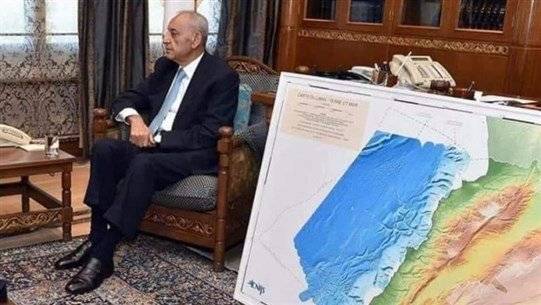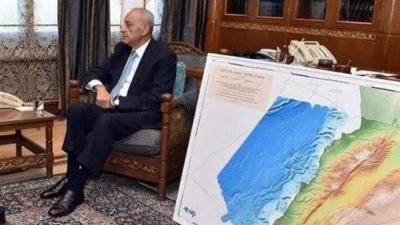Lebanon has minimized the significance of reports regarding Israel's rejection of the Lebanese proposed amendments to the draft maritime border agreement between them. Lebanese officials have announced that they are waiting for U.S. envoy Amos Hochstein to inform them of the Israeli stance. Parliament Speaker Nabih Berri stated to "Asharq Al-Awsat" that "Lebanon does not engage with media leaks, but with facts that should be communicated by the American envoy with whom we limit our communications."
Berri considered that "the Lebanese remarks are simple and were discussed with the American envoy before being sent officially," noting that what is happening now is "Israeli internal electoral skirmishes that do not concern us." He concluded by saying that Lebanon is waiting for an official response from Hochstein "to determine our course of action."
The information announced from Israel yesterday regarding the rejection of Lebanese remarks on the border demarcation agreement led to a state of confusion. After Lebanese officials unanimously agreed on the positive outcomes of the negotiations regarding the border, particularly the proposal received from the American mediator, Deputy Speaker of the Lebanese Parliament Elias Bou Saab, appointed by President Michel Aoun to follow up on the negotiations, stated that "Lebanon is in contact with Hochstein, who mediates in the maritime border agreement with Israel to resolve the remaining issues as negotiations have reached a (decisive) point."
Bou Saab downplayed media reports that indicated Israeli officials rejected the amendments proposed by Lebanon, saying that he would only respond to official statements while affirming that the agreement is "90 percent concluded, but the remaining 10 percent is crucial."
Lebanese ministerial sources told "Asharq Al-Awsat" that "Lebanon has not yet received any official response... and those concerned are in contact with Hochstein." On how this matter would affect the agreement, the sources stated, "Ultimately, these negotiations involve give and take from both sides, and here the American mediator will play the most important role once again to see how things will unfold and what direction they will take."
This issue was a key focus in a meeting held yesterday by President Michel Aoun with Defense Minister in the caretaker government Maurice Slim, where Aoun reiterated that the remarks secure Lebanon's rights. The Lebanese presidency stated in a release that "the discussion addressed the latest developments related to the ongoing negotiations for maritime and southern border demarcation in light of the remarks put forth by the Lebanese side on the proposal presented by the American mediator, particularly since these remarks secure Lebanon's rights to explore for oil and gas in the fields specified in the exclusive economic zone, and also prevent any interpretations that do not align with the framework defined by Lebanon for the demarcation process during the negotiations, which lasted for months."




